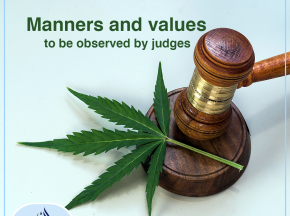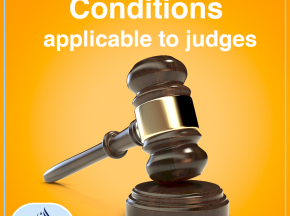content of level
Manners and values to be observed by judges
Manners and values to be observed by judges.
Conditions applicable to judges
Islam: To be a Muslim is one of the essentials of probity and integrity.
Judging Disputes
Qadaa giving a ruling according to Islam and making it binding on people, so as to settle disputes and end quarrels The Muslim ruler must appoint judges as the needs of the community dictate, so that people’s rights are secured and injustice is removed. In the Qur’an Allah says: ‘David! We have made you a vicegerent on earth: judge, then, between people with justice, and do not follow vain desire, lest it leads you astray from the path of Allah’ (38: 26).
Learn Fiqh with Al-Hakeem | Judging Disputes and Testimonies
In this Lecture, Sh. Assim Al-Hakeem discusses and explains the Judging Disputes and Testimonies.
Learn Fiqh with Al-Hakeem | Judging Disputes and Testimonies – part two
In this Lecture, Sh. Assim Al-Hakeem discusses and explains the Judging Disputes and Testimonies – part two.
Manners and values to be observed by judges
Certain values must be observed by judges. Anything that may blur the judge's fairness should be avoided whether anger, fear, etc. Rulings have to be based on the Quran, and Sunnah, unanimity, Ijtihad, or a fatwa by a qualified Mufti.
Conditions applicable to judges
Islam stipulates certain conditions in judges to assume their positions such as: Islam, sanity and adulthood, probity, sound constitution, Knowledge of the Quran and Sunnah, and a degree of scholarship to exercise Ijtihad.
Judging Disputes and Testimonies
The basis of the justice system is the Qura'n, Sunnah and unanimity of scholars. It is important to appoint judges to settle disputes which earn great reward from God because it supports rights and combats corruption.








